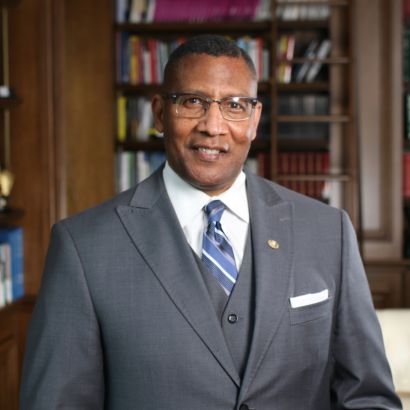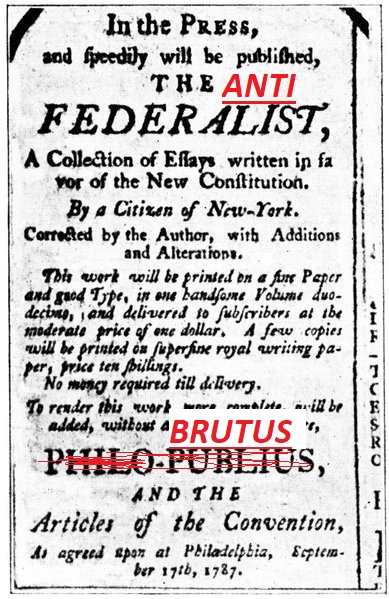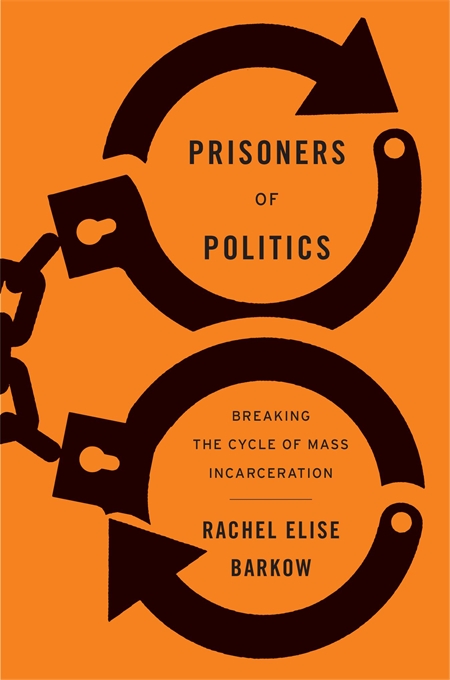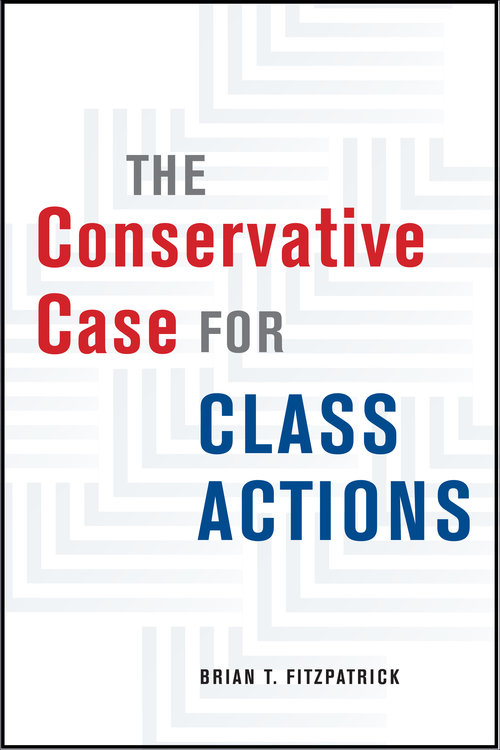The Texas House is considering #HB19, which shifts the costs of tragic wrecks caused by trucking companies onto the victims, and away from insurance companies and trucking companies. This is the latest effort at “tort reform,” which is usually thought of as coming from “conservative” Republicans. In this episode, I explain why there is nothing conservative about this bill, but it is instead a horrible example of #CronyCapitalism. Furthermore, crony capitalism is a gift to socialists who attack capitalism because it lets them compare socialism to crony capitalism instead of free market capitalism. If you compare socialism to crony capitalism, you have a fair fight. But socialism has no chance against true free market capitalism.
Politics
Policies that Help or Harm the Black Community

Problems can be solved. This episode is all about solving the problems related to the gap between outcomes for black communities as compared to white communities.
Race and racial tensions dominate the headlines. Very little of the news or arguments focus on how to make things better. This episode is all about solutions.
Dr. Richard A Johnson III is the director of the Booker T. Washington Initiative. He has been instrumental in crafting policies to help break the school to prison pipeline, and how to improve public safety, public works, healthcare. and housing.
Follow me on Twitter: @melovins!
Cato Institute’s Simon Lester on China, Trade, and Tariffs
I had the opportunity to speak to Simon Lester of the Cato Institute. Mr. Lester (@SNLester) is an expert in international trade policy and international trade law. Don’t believe me? Well, he is the associate director of the Herbert A. Stiefel center for trade policy studies at the Cato Institute. He is a lawyer and has practiced law with a focus on international trade law. He has been a legal affairs officer at the appellate body secretariat of the world trade organization. In 2001 Mr. Lester founded the international trade law website worldtradelaw.net. He’s published several law journal articles regarding international trade. So I’d say he’s an expert on international trade policy and international trade law!
A few of the specific topics we discuss:
- What is fair trade? We use the phrase a lot, but we should be clear about what we mean.
- Are trade deficits good? Bad? Indifferent? Why?
- Is China actually abusive in its trade conduct?
- Are tariffs the best way to respond to China’s behavior?
- What other strategies and tactics does the US have at its disposal?
- Are there national security implications to being heavily reliant on a foreign power for our supply chain?
Check out the links below to listen to this episode wherever you listen to podcasts!
Here are some of the articles I read to get ready for this interview:
Coronavirus/COVID-19: It May Be Bad, But it Will Pass

Unsplash.com
The novel coronavirus may be bad. It could overwhelm our healthcare system can cause tens of thousands of deaths and untold suffering.
The Corona Virus may be no big deal in the grand scheme. That’s the funny thing about the future: we don’t know what it is.
Listen to the podcast for my views on how we should respond:
Some other resources I found interesting: 1918 Spanish Flu. Michael Brendan Dougherty is where I got the phrase “too early is not too late.”
Aggressively Belligerently Ambivalent about Impeachment
I have posted my notes that I used to record this podcast. This is not well-developed prose. It’s just notes. If you’re looking for H.L. Mencken quality, you’ve come to the wrong place!
I am aggressively belligerently ambivalent about the impeachment of Donald J Trump. There are two reasons for my aggressive belligerent ambivalence.
First both sides of the impeachment debate have rational arguments.
Second both sides are motivated by the quest to get and keep power and not by rational arguments.
Let’s start with the rational arguments. First of all,
- Impeach and remove: Trump used the power of the presidency to get a foreign power to investigate his political opponent, or at least he tried to
- Even if you contend that there was/is corruption in Ukraine, no one really believes that Trump is an anti-corruption crusader. Only the most partisanly blind observer truly thinks that Trump was deeply concerned about the corruption in Ukraine and—as luck would have it—it just so happens that the greatest political threat at the time to Trump’s reelection was at the center of the corruption.
- This is one of the biggest problems with having an untrustworthy character in the oval office: we can never trust his motivations. I can live with a leader who gets it wrong sometimes. Our leaders are human and fallible.
- What is a lot harder to stomach is that, when a leader gets it wrong, I can’t give that leader the benefit of the doubt. The safer assumption is that the wrong decision was made because the leader was looking out for himself and no one else.
- Do not impeach/do not remove: it is entirely reasonable to say that Trump has the absolute right under current law to investigate corruption wherever he believes it exists, and if it just so happens that the investigation helps him politically.
- Consider the contrary: should we prohibit all investigations that are incidentally to the president’s political advantage? Is that not a blank check to the party out of power to engage in corrupt behavior?
- And why limit the principle to the power to investigate? Should we also for example prohibit a president from say bombing Afghanistan and Sudan on August 20, 1998—as, of course, a randomly selected hypothetical example—if that bombing would distract the public from a breaking scandal involving the president himself?
- It is also reasonable to say that, while the president shouldn’t have done what he did with respect to Ukraine it doesn’t warrant impeachment and removal. Look if we impeach and remove every time a president does something a bit over the line, we’re going to just have everyone running for vice president and picking a running mate who will be at the top of the ticket as the sacrificial impeachment lamb.
- Let’s take a quick trip down memory lane:
- FDR put people in internment camps without Congressional approval or due process. http://www.history.com/this-day-in-history/roosevelt-ushers-in-japanese-american-internment
- JFK, through his brother and attorney general Robert, sent out FBI agents to invade reporters’ homes in the middle of the night to get information about the steel industry raising prices. He threatened to sic the IRS on them to audit personal and government accounts if they didn’t comply with his demands. https://www.politico.com/magazine/story/2016/12/jfks-dangerous-playbook-for-trump-214547
- LBJ used the CIA to wiretap Barry Goldwater’s campaign in 1964. https://www.politico.com/magazine/story/2018/05/22/cia-fbi-spy-presidential-campaign-trump-goldwater-218415 and https://www.heritage.org/commentary/lyndon-johnsons-watergate
- And one can respond to all of the abuses of power that were NOT met with impeachment and say that they SHOULD have resulted in impeachment. And I’m not going to fight you over that because I think that may be right. But why are we suddenly so concerned about abuses of power?
- I think the real reason is: because it’s Donald Trump and Donald Trump is bad. And I agree that Trump is bad in many ways. He’s an abusive bully and proud philanderer utterly bereft of dignity. I want my son not to be like him. I want my daughters to find husbands who are not like him.
- But the President we don’t like should get treated in the same way as all of the other abusers of power UNLESS we somehow reach some sort of agreement among ourselves that we have a new standard for impeachment over abuse of power and we will mutually agree to apply this new standard to the next president. And if the new standard is “we have enough votes to impeach,” then at least say so.
- I don’t mean an agreement that we have changed the constitutional standard of what is impeachable, but that we change the political standard.
- To be impeached, the president’s conduct should meet the definition of an impeachable offense under the constitution—which we can argue about, but it doesn’t change without a constitutional amendment, AND the president’s conduct must be bad enough that there is the political will to impeach and remove him over it.
- The “political will” prong is inherently changeable, but it shouldn’t change willy nilly, certainly not to the point where we impeach one president for an offense when we would not impeach another president for the same offense.
- Want to impeach? Fine. Just impeach for the reason you’re saying you’re impeaching. In other words, be honest. Crazy, I know.
- There is a bit of “whataboutism” in this argument. But it’s really an equal treatment argument, and I think it’s rational.
- I just don’t think it’s actually motivating opponents of impeaching and removing Trump.
- How utterly nauseating to hear Nancy Pelosi and Adam Schiff talk about how sad they are, how this is such a somber and solemn duty that they undertake with such great reluctance. Oh spare me.
- Never nicotine-stained fingers: Here’s the statement Pelosi should have read
- “I told you so! From the minute we knew Donald J Trump was going to be president, we said he’s unfit for office.
- He’s corrupt and rotten to the core and it’s just a matter of time until he does something impeachable
- I knew it, you knew it, and the American people knew it.
- And now it’s happened. I cannot tell you my unspeakable joy that we are finally removing this cancer and stain on our nation from the oval office.
- And so I am proud—VERY proud—to announce that we are filing articles of impeachment against Donald J Trump.
- We will hold a vote shortly. And then we will see if our GOP colleagues in the Senate have the courage to stand on their own 2 feet and fearlessly vote against the bully who currently occupies the White House. Frankly I doubt they will.
- But the fact that they are feckless will not affect us.
- We will do our job.”
- And then McConnell should’ve made the following statement:
- “we have received the articles of impeachment. The constitution says we must have a trial. It says nothing about what must occur in the trial. It says nothing about witnesses or how long it had hast to take. We all know that impeachment is political, so no court gets to tell us how to run this trial. So this is going to be very short trial. The over-under on witnesses is 1/2, and I’m taking the under.
- We think we know what we need to know, so why should we waste time we could use to confirm more judges?
- My colleagues on the other side of the aisle protest that we are operating in a partisan political manner.
- [here there is a quote from Tommie Lee Jones playing Thaddeus Stevens in the great movie Lincoln]
- Why are we handling it this way? Because this is political, and we have the political power deal with it. Remember when Democrats love to say elections have consequences? Well that cuts both ways.
- If Pelosi and McConnell had made those statements, they would’ve earned no love from their opponents, but they would have at least earned the grudging respect that one gets from telling the truth.
- But – and this is important – neither Pelosi nor McConnell ever said anything remotely close to that.
- The Democrats kept talking about how sad they were and how somber impeachment is, and how important this constitutional duty is.
- From the Republicans it was constant outrage at how partisan this was. A witch hunt.
- [here there is a quote from Tommie Lee Jones playing Thaddeus Stevens in the great movie Lincoln]
- Maybe the weirdest thing about the whole charade to me is that we all know they’re being totally disingenuous and the main actors—Pelosi, Schiff, McConnell, etc. have to know that we all know they’re full of bull. Why is no one saying it?
- Where is the intrepid soul who will step up and simply say “you’re all lying!”?
- Am I the only one who’s not in on the joke?
- was there some meeting where everyone agreed to pretend these people are serious?
- Am I stuck in the Truman show and everyone is watching to see how long it takes for me to lose my mind?
- If we took the people on either side of this debate seriously, we would be convinced that this—like everything else—is a Constitutional crisis. The immediate viability of our nation hinged on the outcome of this impeachment process, just as it hinges on every other controversy du jour.
- For the Democrats, failure to remove Trump from office will automatically create a tyrannical king with unchecked power to do anything he wants without limits, which is a Constitutional crisis.
- For the GOP, removing Trump from office creates a Constitutional crisis because it would render the president incapable of conducting foreign policy, leaving us without an effective executive branch. If the House is held by the party opposite the President, then all we will do is impeach and the nation will grind to a halt.
- Well I’m calling bull on both sides.
- Our nation is on a bad path politically right now.
- The economy is doing well, and that’s great, but that can change dramatically and quickly.
- But our civic culture is on a bad path because the loudest mouths in our system are so stinking self-righteous that the very notion that they may be wrong on any particular issue is an attack on their very humanity.
- And if your value as a human hinges on your rightness on a political issue, then anyone who disagrees with you MUST be attacked as a vile, inhuman animal who hates American and has apocalyptic intentions and is bringing about a Constitutional crisis.
- And that is exactly the framework in which this impeachment drama played out.
- Both sides have to pretend that everything is a Constitutional crisis.
- Disagree with me and you bring the apocalyptic Constitutional crisis
- Agree with me and enjoy utopia.
- They’re both false and I’m not playing that game.
- The bottom line is this I will default to ambivalence so long as I view the leaders at the top of both parties as generally lacking in character, and statesmanship.
- And this is the constitutional crisis we truly face. This – the lack of integrity and leadership-–is the apocalyptic threat to our republic. We will continue to slide downward as a republic, as a culture, and as a force for good in the world until we the people demand leaders who are trustworthy, people who we can trust at least to struggle to be motivated by our better angels.
- People who can humbly recognize their own corruptibility and willingly submit in word and deed to a constitutional structure that limits their power to fall prey to their own selfish ambitions.
- You can reasonably go either way on the issue of whether Donald John Trump should’ve been removed from office. But you cannot make me think that agreeing with you will save our republic. And you cannot make me think that disagreeing with you will destroy our republic.
What is Socialism, Anyway?

If you’re paying any attention at all, you have heard the word “socialism” thrown around a whole lot more in the last few years than ever before. At least, you’ve heard it more frequently without an expletive before it. In fact, the current leader in the contest for the Democratic Party nomination for President is a self-described and unapologetic socialist (that’s Bernie Sanders, Senator from Vermont, if you have been living under a rock for a long time–which I can understand but I don’t encourage!).
But what does that really mean? The vast majority of us—I think—abhor the idea of socialism, but do we really know what it is? And a common critique (for good reason) of socialism is that it will utterly destroy an economy, and/or lead to outright communism. Is that true? Wait! What IS communism?
And hold it: isn’t socialist paradise found in Norway and Denmark? Shouldn’t we learn from them and imitate?
I dive into these questions and more with James Harrigan and Antony Davies, both Distinguished Fellows with FEE, the Foundation for Economic Education. James is a political scientist who leads the Center for the Philosophy of Freedom at the University of Arizona. Antony Davies is an economics professor at Duquesne University. They have both written a lot of scholarly articles and also in the popular press about these topics.
Together Antony and James host the very popular podcast Words and Numbers. Follow Antony on Twitter. Follow James, too. Finally, they have a Facebook group for Words and Numbers.
I hope you enjoy this interview. If you do, please do me a massive favor and leave me a 5 star review on iTunes or Spotify or wherever you listen to podcasts. And if you really want to be my hero, Tweet it or post it on Facebook or whatever social media you prefer. Thanks!
Prisoners of Politics with Rachel Barkow
Criminal justice is a tough issue. It’s easy to say “lock ’em up!” It’s so easy, in fact, that that’s exactly what nearly every politician says. But unless you’re going to lock ’em all up forever, you have to think about what happens when a convicted criminal is released.
In this episode of the Personal Responsibility Lawyer podcast, I interview Prof. Rachel Barkow (@RachelBarkow), author of Prisoners of Politics (click the link to buy on Amazon). Prof. Barkow teaches at New York University Law School, where she is the Vice Dean and Segal Family Professor of Regulatory Law and Policy. Her resume is exceptionally impressive, and I unintentionally gave it short shrift when I introduced her in this episode. She is a graduate of Harvard Law School, where she was on the Harvard Law Review. After law school, she served as a law clerk to Judge Laurence Silberman of the DC Court of Appeals, and then for Antonin Scalia at the United States Supreme Court. She then served in private practice before entering academia. She is also a member of the American Academy of Arts and Sciences.
Perhaps most important for Prof. Barkow’s criminal justice expertise, she was appointed by President Obama as a Commissioner on the United States Sentencing Commission, where she served from 2013-2019. Since 2010, she has been a member of the Manhattan District Attorney’s Office Conviction Integrity Policy Advisory Panel.
It would be silly of me to try to recap this whole episode here, but let’s hit a few highlights. First, while we may think that putting more people in prison makes crime go down, it doesn’t. Arguably, the opposite happens.
Second, we have a lot of penalties that extend beyond the time that a person is in prison, and those things often make it next to impossible for a person to earn an honest living. Obviously, that makes crime more attractive.
Third, longer sentences aren’t the answer (at least for crime prevention) because that’s not what deters crime. The fear of getting caught is what deters crime.
There’s a bunch more. Listen and enjoy this episode! And don’t forget to subscribe!
Finally, a quick reminder that the Personal Responsibility Lawyer is sponsored by my law firm, Lovins Trosclair. We help people who have been through terrible tragedies, serious injuries and even deaths resulting from the irresponsible choices of others. Call us at 512-535-1649 or go to our website, www.LTLegalTeam.com if you need us. We are here to help.
The Anti-Federalist Papers with Judge Andrew Oldham

It’s easy to cheer for the Constitution now. But in 1787, not everyone was excited about it. Not even all the Founding Fathers favored ratification.
Serious students of the Constitution study the Federalist Papers, written by John Jay, James Madison, and Alexander Hamilton. To even casually curious historians, The Federalist Papers are known as the prominent arguments in favor of ratifying the Constitution. We all easily forget, though, that the proponents of the Constitution had opponents.
Since we forget that they had opponents, we certainly forget what the opponents were called. Well, it’s not that hard. Those who favored ratification of the Constitution were the Federalists, so those who opposed ratification were the Anti-Federalists. We know who wrote the Federalist Papers, but we only know some of the authors of the Anti-Federalist Papers.
Probably their greatest impact was securing certain guarantees, which became the Bill of Rights. Some of the Anti-Federalists went on to hold prominent positions in the new government under the ratified Constitution.
In this episode of the Personal Responsibility Lawyer podcast, I had the distinct privilege to interview Judge Andrew Oldham. Judge Oldhamis one of the foremost authorities on the Anti-Federalist Papers and also a sitting judge on the United States Court of Appeals for the Fifth Circuit.
Judge Oldham has written about the Anti-Federalist Papers in the New York University Journal of Law & Liberty. I strongly recommend that you read this piece. There’s a ton of fascinating history there that adds great color and texture to the whole ratification story. We tend to think of the Founders as a bunch of friends who got along and worked together to find a mutually agreeable solution to the problems the new nation faced. That’s simply not the case. Reading the Anti-Federalist Papers–and some of the fierce accusations made by the writers–reveals the bigger story.
The Wall Street Journal has also written about Judge Oldham’s scholarship, specifically regarding the insights they give us into modern administrative law.
There’s so much that is fascinating about the Anti-Federalist Papers, and it’s way more than I can cover here. Listen to this episode and then start going down the rabbit hole of information until you realize you have to come back out and get some work done!
Note: Judge Oldham’s appearance on the Personal Responsibility Lawyer does not indicate any endorsement of Lovins Trosclair, PLLC, or of the Personal Responsibility Lawyer.
The Conservative Case for Class Actions
Why do conservatives seem to hate class actions? Why do conservatives vilify class action attorneys? It’s not because conservatives are maintaining ideological purity, according to law Professor Brian Fitzpatrick.
Prof. Fitzpatrick is no stranger to conservative legal circles. After graduating first in his Harvard Law School class, he clerked for conservative Reagan-appointee Judge Diarmuid O’Scannlain in the Ninth Circuit Court of Appeals. Soon thereafter he clerked for conservative icon Justice Antonin Scalia.
Neither is Prof. Fitzpatrick new to conservative political circles. He served as Special Counsel for Supreme Court Nominations to conservative Republican U.S. Senator John Cornyn (R-TX). He’s also a frequent presenter at events hosted by the Federalist Society (which doesn’t necessarily mean he is conservative, as the Federalist Society hosts events with speakers from a very wide array of viewpoints).
There’s a handful of reasons why conservatives should support class actions. They are better than extensive government regulations. They allow private enforcement instead of government enforcement of market rules. Class actions do a better job of compensating injured parties than government enforcement.
Class actions aren’t perfect, but nothing is. Prof. Fitzpatrick has some ideas that could make them better.
Listen to the interview to learn more about The Conservative Case for Class Actions.
You can find out more about Professor Fitzpatrick at his Vanderbilt faculty webpage or at brianfitzpatrick.com. You can (and should!) buy The Conservative Case for Class Actions on Amazon.
Listen to the Podcast:
My Non-Appearance on Meet the Press
Occasionally, the good people over at Meet the Press inadvertently invite actual politicians on to the show. Instead of me. That makes perfect sense because, well, what the politicians say is what people care about.
BUT, in doing so, Meet the Press often fails to get candid answers to predictable questions. That’s where I come in. I answered some of the questions that Chuck Todd put to Ted Cruz on February 14, 2016. He asked similar questions of other candidates. Here’s the video.






